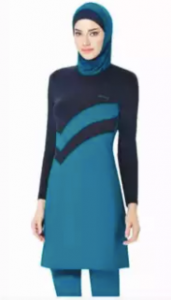Malaysia has very specific customs that expats (and visitors) should try to observe while in the country. Here are several common courtesies and customs that you can follow during your stay:
Do Malaysians shake hands?
Handshakes are generally acceptable for both men and for women. Some Muslim women might acknowledge an introductions to a man by simply nodding and smiling. A handshake between a man and a woman should only be initiated by the woman.
The salam, or traditional greeting, resembles a handshake but using both hands, and without the hand grasp. A man offers both of his hands and lightly touches his friend’s outstretched hands, and then raises his arms and hands to his chest. This means “I greet you from my heart”. The other person would reciprocate the salam.
What customs should I observe when visiting a Malaysian home?
Do not show up unannounced. It is polite to call before visiting a person’s home. When you arrive, be sure to remove your shoes and leave them outside.
Hosts will typically offer a drink of some kind shortly after the guest’s arrival as a refreshment. It is polite to accept the offer.
If invited as a house guest or for dinner at a Malaysian home, bring a modest gift. There are three different ethnic groups in Malaysia, including Malays, Malay Chinese, and Indians. Many Malays are Muslim. You would bring a gift that would be culturally appropriate. Do not give pork or alcohol to a Muslim.
Shoes and clothing in Malaysia
Following on the above advice about removing shoes when entering a person’s home, you would also remove your shoes when entering places of worship such as mosques and temples.
Malaysians are progressive and the younger non-Muslims will dress in public as any young person would in the West. However excessive display of the midriff or bosom might be looked upon with disdain by some. Shorts and tank-tops are allowable, however women should always carry a shawl or wrap to use when visiting government offices or places of worship. (If in doubt, say when attending a meeting, wear a knee length skirt and cover the shoulders.)

Western beachwear is appropriate at resorts, however excessively tiny winy bikinis or swimming brief may be met with stares and some discomfort. Topless sunbathing is not permitted. When you encounter local Muslim Malaysians, you will see that the women wear full length swimwear and in some cases a .
What are the eating customs in Malaysia?
Food is sometimes consumed by hand and so the the right hand is always used when eating. with one’s hand or giving and receiving objects. The left hand is considered taboo. It should not be used to eating or to handling food in any way.
How do I point in Malaysia?
Don’t use your right forefinger to point at places, objects or people. Use the thumb on your right hand instead and fold your four fingers under.
What are the tipping customs in Malaysia?
Tipping is not generally observed in Malaysia, at least not at restaurants as service charges are included in the price.
In an upscale hotel, you can tip your bellman for handling bags or any hotel employee that provides superior service.
Malaysian taxi drivers will provide exact change, but it can be customary to round up. So a fare that runs RM9.60 (9 ringgit and 60 cents) would be paid for with a RM10 note. Waiting for change is at your discretion, however you might find that most people don’t worry about the small amount. In the this case the difference would be 40 cents and in western currencies converts to around or less than 10 cents/pence.
In the case of Grab drivers (Asia’s equivalent of Uber), the exact amount is transfer via app. If you use cash, you can certainly follow the taxi driver guidance above.
If you food delivery driver (usually motorcyclist) is one time, courteous, or provides great service, then you might want to offer them RM1 or so. In my experience it is usually met with a smile and a slightly surprised reaction.
As always, a tip is very much appreciated to anyone who is offered it. That is if their role allows to receive a tip. Some companies instruct their employees to refuse a tip. For example, in Bangsar (a suburb of Kuala Lumpur) when we live, the local shopping center has valets that help load bags in and out of cars. They decline tips.

